QuestionI had one of my rats, seemingly in perfect health except for a very slight lethargy the previous 24hours, fall over in acute respiratory distress and die within minutes. The necropsy showed intense hemorrhage in the lungs of acute pneumonia. Culture and sensitivity showed two types of streptococcus and one moraxella bacterium - normally associated with otitus media and pneumonia in humans.
Here's my question - this guy lived in a communal cage with 4 other boys, and I'm now desparately treating them all with baytril and doxycycline to try and head off any other brewing infections. The rx's were the result of the sensitivity plates the pathologist tested, the two strep species were sensitive to baytril, the moraxella sp. was resistant to baytril and sesitive to doxy.
I need advice - I can't imagine how to best sterilize the cage, because they have been integrated for so long. What else should I be doing? I'm scared and very sad and really don't want to bury any more babies so suddenly and unexpectedly.
Answer
Streptococcus pneumoniae is one of the most lethal forms of pneumonia our rats can get. Coming on out of the blue in an otherwise healthy rat, it kills within 24 to 36 hours of onset and there is usually nothing that can be done to save them since it usually advances faster than most people have time to take action as far as veterinary care etc... Even if you get them to the vet the minute they show signs of lethargy, unless the vet is really on the ball with rat care, the rat is often sent home with a start up dose of baytril and doxy. Usually though this is not aggressive enough for start up care and the route of antibiotic administration should be more aggressive, even sedating the rat slightly and starting an IV to get the drugs into the blood stream are warranted to treat such a killer infection. This of course means that the vet needs to be very focused on exotics or having the proper equipment such as small scale IV needles as well as the knowledge how to even start an IV in a rat is often a rarity in most clinical settings unless your lucky enough to have an all exotic vet clinic (probably one two three per state, with some states having none at all, unfortunately) or an ER that is willing to think "newborn kitten" and treat the rat as such, and again, unless there is someone highly knowledgeable in exotics wouldnt even know where to begin inserting an IV needle into a sick rat.
I have witnessed perhaps 3 out of several dozen survive it. Those rats received immediate treatment with amakacin and baytril but it was touch and go for nearly a week. These rats also were kept in oxygen and nebulized antibiotics and other medications. However, this is not the normal case and as you know, this is often fatal and a fast moving, brutal ugly illness.
As for the moraxella bacteria, often found in the upper respiratory tract and is responsible for otits media and chronic bronchitis this is also found to be the cause of meningitis as well.
I do want to tell you that I am very sorry for your loss. Its hard to lose them so suddenly like that and I share in your sorrow, as I have lost my own rats to this type of infection myself over the years.
I do want to thank you though for the necropsy and the chance to help us further understand how this disease works, the damage it can do to the rats lungs (such as learning that the rat had intense hemorrhage in the lungs) I always encourage necropsy in many cases as this helps Vets understand and learn more about rat ailments and in turn, we are more aware of things and it helps us provide better vet care in the long run. Each rat that we give for necropsy is a hero in his or her own right, and they are more than happy to look down upon their fellow ratties and know that they helped contribute to their future in better medicine for small exotic companion mammals.
That said, I will tell you that you dont need to really panic much about this making your other rats sick. It seems to only attack one rat in the colony in many cases, for reasons unknown. Some cases are host specific, and although it can be contagious, we have been lucky to see LESS of this in epidemic proportions like SDA tends to be.

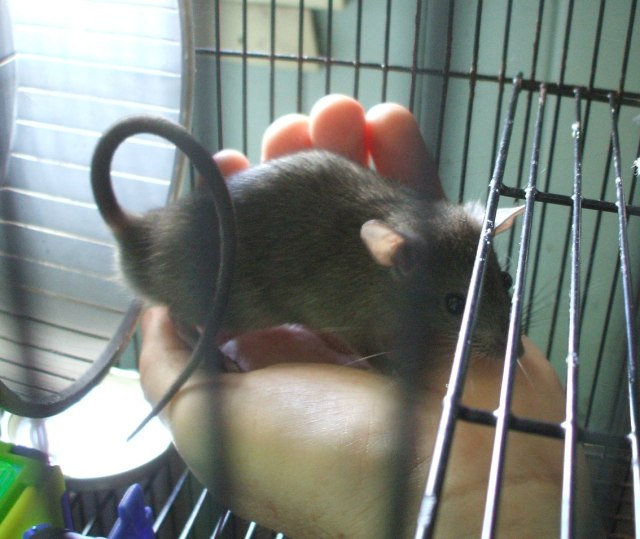 owning a wild rat
QuestionQUESTION: Hello Sandy,
I found your answer to
owning a wild rat
QuestionQUESTION: Hello Sandy,
I found your answer to
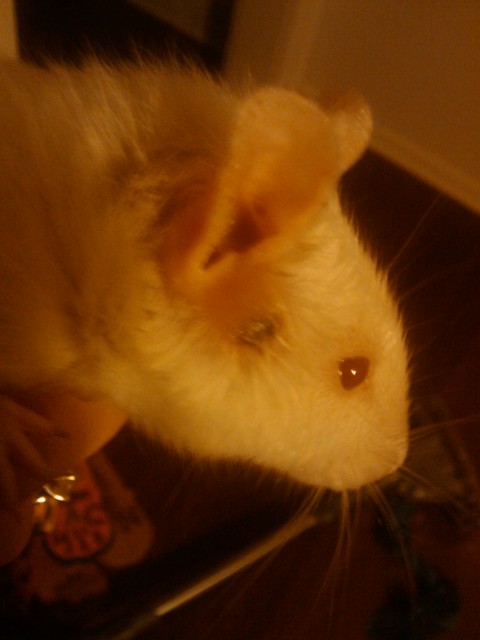 ear infection?
Question
QUESTION: I really appreciate your help
ear infection?
Question
QUESTION: I really appreciate your help
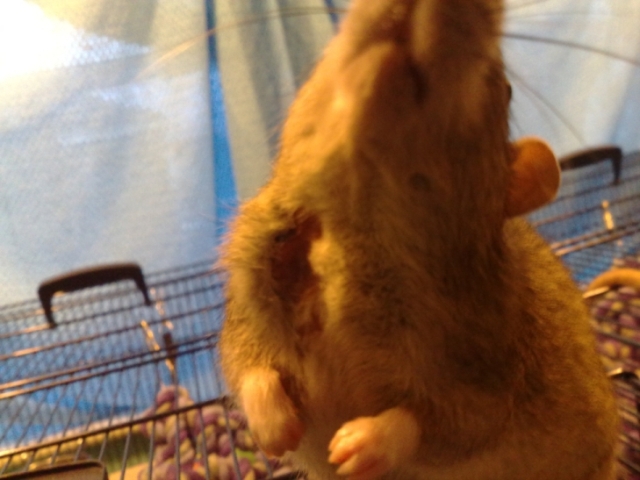 Rat is tearing fur and skin out - Post Op
QuestionCustard Wound Close Up
QUESTION: Hi,
I
Rat is tearing fur and skin out - Post Op
QuestionCustard Wound Close Up
QUESTION: Hi,
I
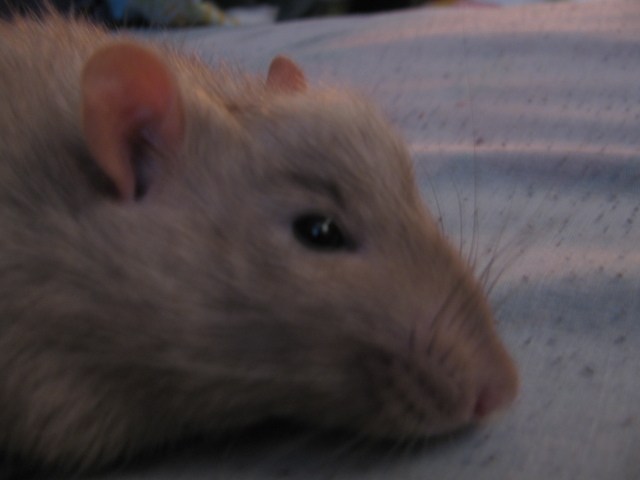 Mister Pinky --lump
Question
Pinky
hello Sandra!
I hope all is well with y
Mister Pinky --lump
Question
Pinky
hello Sandra!
I hope all is well with y
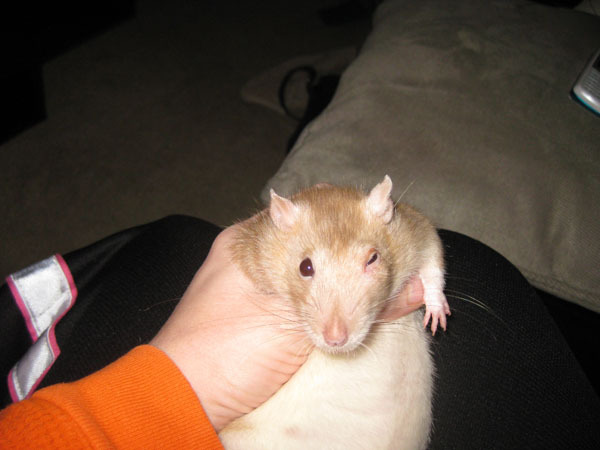 swollen eye, rat
Question
swollen eye, Lain
Hi Sandra,
My rat, Lain, ha
swollen eye, rat
Question
swollen eye, Lain
Hi Sandra,
My rat, Lain, ha